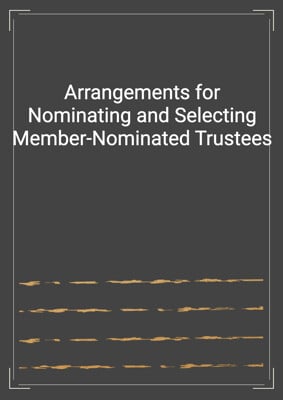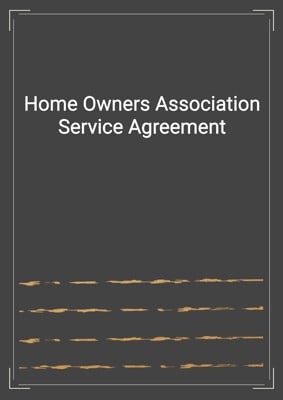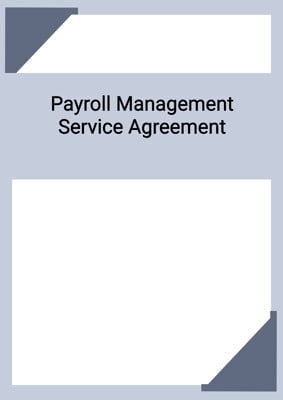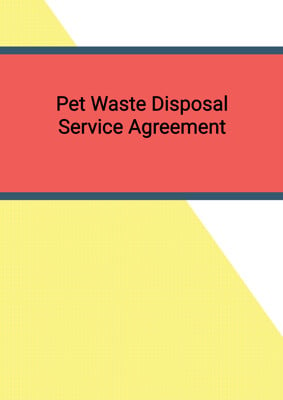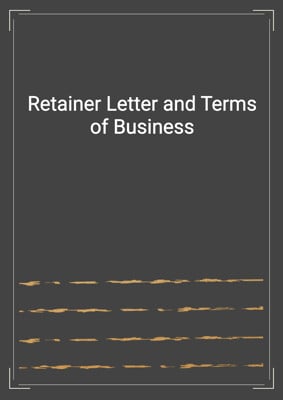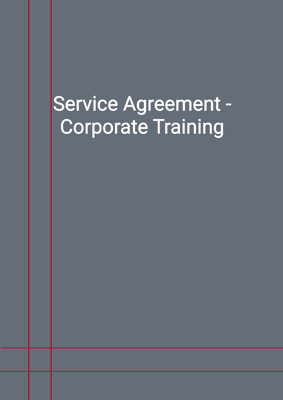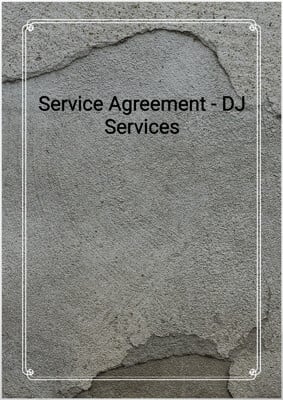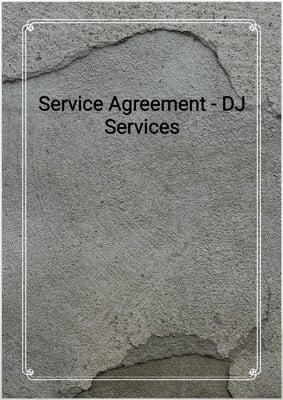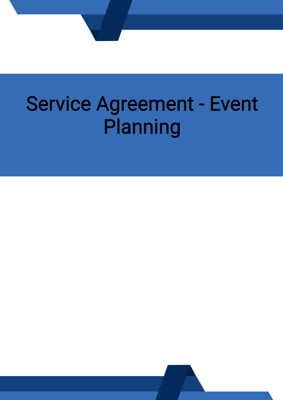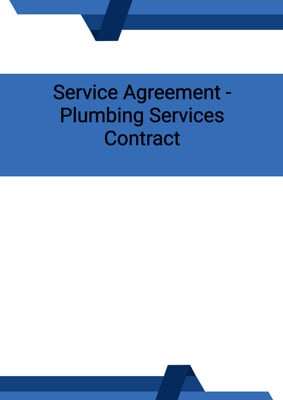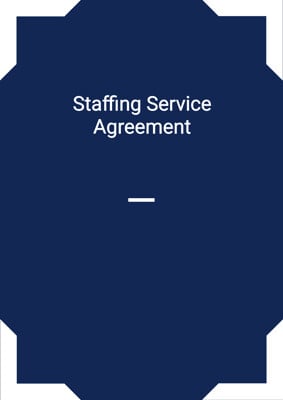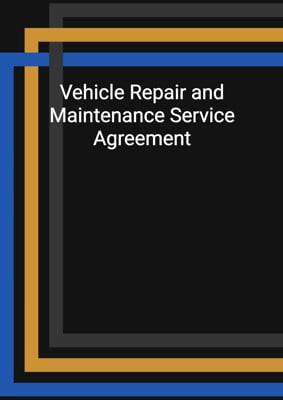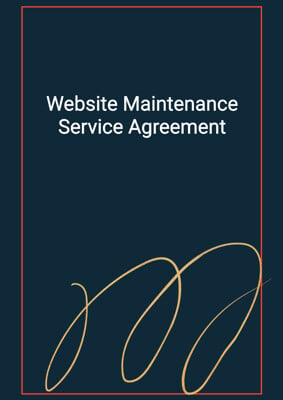How to Tailor the Document for Your Need?
01
Create Document
Fill in the details of the parties. You can click the "Fill with Member’s Information" button to complete it with information saved to your account.
02
Fill Information
Please fill in any additional information by following the step-by-step guide on the left hand side of the preview document and click the "Next" button.
03
Get Document
When you are done, click the "Get Document" button and you can download the document in Word or PDF format.
04
Review Document
Please get all parties to review the document carefully and make any final modifications to ensure that the details are correct before signing the document.
Document Preview
Document Description
The Service Agreement - Moving Services is a document that outlines the terms and conditions between the servicer and the customer for the provision of moving services. This agreement is important as it establishes the rights and obligations of both parties, ensuring a clear understanding of the scope of work, pricing, completion date, and other important details.
The entire document is divided into several sections, each addressing specific aspects of the agreement. The first section, titled 'Interpretation,' provides definitions for key terms used throughout the agreement. This ensures that both parties have a common understanding of the terminology used.
The second section, 'Servicer's Obligations,' outlines the responsibilities of the servicer. It includes provisions for using professional knowledge and skill to pack, load, and transport household and personal possessions. The servicer is also required to provide the services in a professional and diligent manner, complying with all applicable laws and regulations.
The third section, 'Servicer Employees,' specifies the number of employees assigned to perform the services and allows the servicer to change employee assignments if necessary.
The fourth section, 'Inventory,' requires the servicer to prepare an inventory of the items being shipped and list their condition. This inventory will be compared to the delivered items to ensure accuracy.
The fifth section, 'Completion of the Work,' emphasizes the importance of timely completion of the services. It allows for an extension of the completion date if necessary and specifies the consequences of non-completion.
The sixth section, 'Service Fees,' outlines the payment terms and schedule. It includes provisions for invoicing, due dates, late charges, and reimbursement of expenses.
The seventh section, 'Laws and Permits,' acknowledges that the servicer must comply with the rules of the location where the services are provided, and any flexibility desired by the customer must be discussed with the location management.
The eighth section, 'Background Check,' affirms that the servicer's employees have undergone a comprehensive background check and have no criminal history or listings on sex-offender registries.
The ninth section, 'License and Insurance,' requires the servicer to obtain necessary licenses and maintain appropriate insurance coverage to cover liability arising from the services.
The tenth section, 'Claims,' establishes the procedures for submitting claims for lost, damaged, or destroyed items and sets timeframes for acknowledgment and disposition of claims.
The eleventh section, 'Warranties and Indemnities,' imposes obligations on both parties to promptly notify each other of any delays, problems, or complaints related to the services. It also requires the servicer to rectify any defects in the provision of services.
The twelfth section, 'Term and Termination,' specifies the duration of the agreement and the conditions under which either party can terminate it. It also addresses the consequences of termination.
The thirteenth section, 'Ownership of Materials,' clarifies that materials and goods delivered to the site become the property of the customer, while intellectual property developed under the agreement becomes the customer's property.
The fourteenth section, 'Confidential Information,' imposes obligations on the parties to keep the terms of the agreement and any confidential information disclosed during the agreement confidential, subject to certain exceptions.
The fifteenth section, 'Announcements/Publicity,' requires the parties to obtain approval from each other before making any announcements or disclosures related to the agreement.
The sixteenth section, 'Amendment,' states that any changes to the agreement must be in writing and signed by the parties.
The seventeenth section, 'Assignment,' prohibits the parties from assigning the agreement or subcontracting its performance without the other party's written consent.
The eighteenth section, 'Severability,' provides that if any provision of the agreement is deemed illegal, void, or unenforceable, it will be removed, and the remaining provisions will remain in effect.
The nineteenth section, 'Further Assurance,' requires the parties to perform any further acts or execute additional documents necessary to implement the agreement.
The twentieth section, 'Warranty of Capacity and Power,' includes representations and warranties from each party regarding their authority and capacity to enter into and perform the agreement.
The twenty-first section, 'Force Majeure,' relieves the parties from liability for failure or delay in performing their obligations due to causes beyond their control.
The twenty-second section, 'No Rights under Contracts for Third Parties,' clarifies that only the parties to the agreement have rights under it.
The twenty-third section, 'Arbitration and Proper Law,' encourages the parties to resolve any disputes amicably and in good faith. It also specifies the jurisdiction for any legal proceedings.
The twenty-fourth section, 'Notices and Service,' provides guidelines for serving notices between the parties, including methods of delivery and deemed receipt.
The twenty-fifth section, 'Counterparts,' allows the agreement to be executed in multiple counterparts, with each counterpart considered an original document.
This detailed description provides a comprehensive overview of the entire document, highlighting the importance of each section and its role in establishing the rights and obligations of the servicer and the customer.
How to use this document?
1. Provide information: Enter the servicer's and customer's information in the agreement, including their principal place of business. This ensures clear identification of both parties.
2. Specify services and completion date: Clearly describe the moving services to be provided by the servicer and specify the completion date. This ensures that both parties understand the scope of work and the expected timeline.
3. Outline servicer's obligations: Detail the servicer's responsibilities, such as packing, loading, and transporting household and personal possessions. Emphasize the importance of providing services in a professional and diligent manner, complying with applicable laws and regulations.
4. Address employee assignments: Specify the number of employees assigned to perform the services and allow for changes if necessary.
5. Prepare inventory: Require the servicer to prepare an inventory of the items being shipped and list their condition. Both parties should retain a copy for future reference.
6. Ensure timely completion: Emphasize the importance of completing the services by the agreed-upon completion date. Allow for extensions if necessary, but specify the consequences of non-completion.
7. Establish payment terms: Outline the service fees, including the invoicing schedule, due dates, and any late charges. Address reimbursement of expenses and the servicer's responsibility to keep records.
8. Comply with laws and permits: Acknowledge that the servicer must comply with rules imposed by the location where the services are provided. Discuss any flexibility desired by the customer with the location management.
9. Conduct background checks: Affirm that the servicer's employees have undergone comprehensive background checks and have no criminal history or listings on sex-offender registries.
10. Obtain licenses and insurance: Require the servicer to obtain necessary licenses and maintain appropriate insurance coverage to protect against liability.
11. Establish claims process: Specify the procedures for submitting claims for lost, damaged, or destroyed items. Set timeframes for acknowledgment and disposition of claims.
12. Address warranties and indemnities: Oblige both parties to promptly notify each other of any delays, problems, or complaints related to the services. Require the servicer to rectify any defects in the provision of services.
13. Define term and termination: Specify the duration of the agreement and conditions for termination by either party. Address the consequences of termination, including possession of the site and payment for completed services.
14. Clarify ownership of materials: Establish that materials delivered to the site become the customer's property, while intellectual property developed under the agreement becomes the customer's property.
15. Maintain confidentiality: Impose obligations on the parties to keep the terms of the agreement and any confidential information disclosed during the agreement confidential, subject to certain exceptions.
16. Obtain approval for announcements/publicity: Require the parties to obtain each other's approval before making any announcements or disclosures related to the agreement.
17. Allow for amendment: Specify that any changes to the agreement must be in writing and signed by the parties.
18. Prohibit assignment: Prohibit the parties from assigning the agreement or subcontracting its performance without the other party's written consent.
19. Address severability: Provide that if any provision of the agreement is deemed illegal, void, or unenforceable, it will be removed, and the remaining provisions will remain in effect.
20. Perform further acts if necessary: Oblige the parties to perform any further acts or execute additional documents necessary to implement the agreement.
21. Ensure capacity and power: Include representations and warranties from each party regarding their authority and capacity to enter into and perform the agreement.
22. Account for force majeure: Specify that neither party will be liable for failure or delay in performing their obligations due to causes beyond their control.
23. Clarify rights under contracts: Clarify that only the parties to the agreement have rights under it and that third parties cannot enforce its terms.
24. Encourage amicable resolution: Encourage the parties to resolve any disputes amicably and in good faith. Specify the jurisdiction for any legal proceedings.
25. Serve notices properly: Follow the guidelines for serving notices between the parties, including methods of delivery and deemed receipt.
26. Execute counterparts: Allow the agreement to be executed in multiple counterparts, with each counterpart considered an original document.
Not the right document?
Don’t worry, we have thousands of documents for you to choose from:


